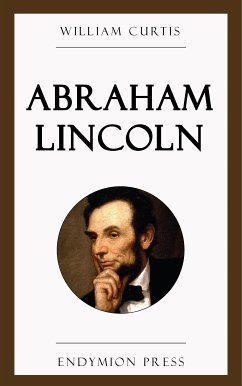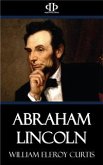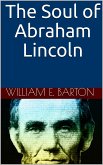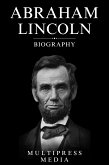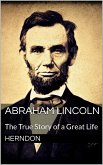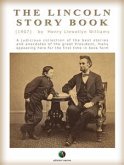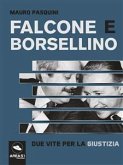This is not a conventional biography. It is a collection of sketches in which an attempt is made to portray the character of Abraham Lincoln as the highest type of the American from several interesting points of view. He has doubtless been the subject of more literary composition than any other man of modern times, although there was nothing eccentric or abnormal about him; there were no mysteries in his career to excite curiosity; no controversies concerning his conduct, morals, or motives; no doubt as to his purposes; and no difference of opinion as to his unselfish patriotism or the success of his administration of the government in the most trying period of its existence. Perhaps there is no other man of prominence in American history, or in the history of the human family, whose reputation is more firmly and clearly established. There is certainly none more beloved and revered, whose character is so well understood and so universally admired, and whose political, moral, and intellectual integrity is so fully admitted by his opponents as well as his supporters.
Of such a man, wrote a well-known writer, the last word can never be said. Each succeeding generation may profit by the contemplation of his strength and triumphs. His rise from obscurity to fame and power was almost as sudden and startling as that of Napoleon, for it may truthfully be said that when Mr. Lincoln was nominated for the Presidency he was an unknown man. He had occupied no important position; he had rendered no great public service; his reputation was that of a debater and politician, and did not become national until he delivered a remarkable speech at Cooper Union, New York. His election was not due to personal popularity, nor to the strength of the party he represented, nor to the justice of his cause; but to factional strife and jealousies among his opponents. When the American people were approaching the greatest crisis in their history, it was the hand of Providence that turned the eyes of the loyal people of the North to this plain man of the prairies, and his rugged figure rose before them as if he were created for their leader...
Of such a man, wrote a well-known writer, the last word can never be said. Each succeeding generation may profit by the contemplation of his strength and triumphs. His rise from obscurity to fame and power was almost as sudden and startling as that of Napoleon, for it may truthfully be said that when Mr. Lincoln was nominated for the Presidency he was an unknown man. He had occupied no important position; he had rendered no great public service; his reputation was that of a debater and politician, and did not become national until he delivered a remarkable speech at Cooper Union, New York. His election was not due to personal popularity, nor to the strength of the party he represented, nor to the justice of his cause; but to factional strife and jealousies among his opponents. When the American people were approaching the greatest crisis in their history, it was the hand of Providence that turned the eyes of the loyal people of the North to this plain man of the prairies, and his rugged figure rose before them as if he were created for their leader...

